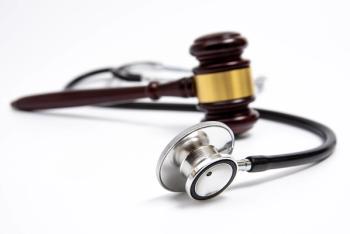
Sen. John Fetterman goes to a hospital for depression. His admission could help others.
The senator checked into Walter Reed for treatment. Supporters praised him for disclosing what is often a private battle and said it may spur others to seek treatment.
U.S. Sen. John Fetterman is getting treatment for clinical depression, and he’s getting praise for sharing a health struggle that is marked by stigma and fear.
Fetterman checked himself into Walter Reed National Military Medical Center, his office said Thursday. Fetterman was examined by Brian P. Monahan, the attending physician of Congress. Monahan suggested Fetterman check into Walter Reed for treatment, and Fetterman agreed to be admitted Wednesday, his office said.
While Fetterman “has experienced depression off and on throughout his life, it only became severe in recent weeks,” Adam Jentleson, his chief of staff, said in a statement. Fetterman is getting the care he needs on a voluntary basis, his office said.
A Pennsylvania Democrat, Fetterman just took office in January after
Fetterman received expressions of support from political allies and supporters. But he also received expressions of gratitude for disclosing his struggle with depression. Some suggested his openness with a private battle, especially with his high public profile, could spur others to seek assistance.
It could be especially useful in the healthcare industry, where many clinicians don’t seek assistance for mental health issues due to the stigma or fear that it could harm their careers.
‘Break down the stigma’
Scott Hadland, a pediatrician and chief of adolescent medicine at MassGeneral Hospital for Children and Harvard Medical School, said he admired Fetterman’s courage, especially with the stigma and vitriol in politics.
Hadland
The National Alliance for Mental Illness (NAMI)
U.S. Rep. Ritchie Torres, a Democrat from New York, wrote on Twitter, “I admire Senator John Fetterman for openly seeking treatment for depression at Walter Reed. Back in 2010, I was hospitalized for depression. I would not be alive, let alone in Congress, were it not for mental health care. Millions of Americans are rooting for you, Senator.”
Democratic U.S. Sen. Bob Casey Jr. offered his support for his fellow Pennsylvania senator.
Casey, who just had cancer for prostate surgery and is expected to make a full recovery,
“Millions of Americans struggle with their mental health,” Casey said. “I am proud of @SenFettermanPA for getting the help he needs and for publicly acknowledging his challenges to break down the stigma for others.”
U.S. Sen. Tina Smith, a Minnesota Democrat, expressed similar sentiments.
“In the short time I’ve worked with John Fetterman, I’ve been struck by his resilience and heart. John is doing exactly what he should do, which is seek help. Seeking help when you need it is a sign of strength, not weakness, something that John is demonstrating for all of us,” she
Just last week, Fetterman was admitted to George Washington University Hospital, but his office said tests ruled out another stroke.
Gisele Fetterman, his wife, issued a
“After what he’s been through in the past year, there’s probably no one who wanted to talk about his own health less than John,” she said on Twitter. “I’m so proud of him for asking for help and getting the care he needs.”
Many healthcare workers don’t seek help
While some expressed hope that others struggling would be moved by Fetterman’s disclosure to seek help, healthcare leaders say too many healthcare workers aren’t seeking assistance for mental health issues.
And after nearly three years of working in the COVID-19 pandemic amid trying conditions, many doctors, nurses and other healthcare workers say they are dealing with burnout and depression.
The survey found 53% of doctors said they were experiencing burnout, and nearly a quarter of the physicians surveyed (23%) said they were battling depression. But only 13% said they were getting assistance from a professional. Roughly four out of 10 physicians surveyed (39%) said they weren’t getting help and wouldn’t think about it.
“It’s not only having the resources … it’s making sure physicians are aware of those resources, but even more importantly that they’re comfortable in accessing those resources,” Frieman said.
The



































